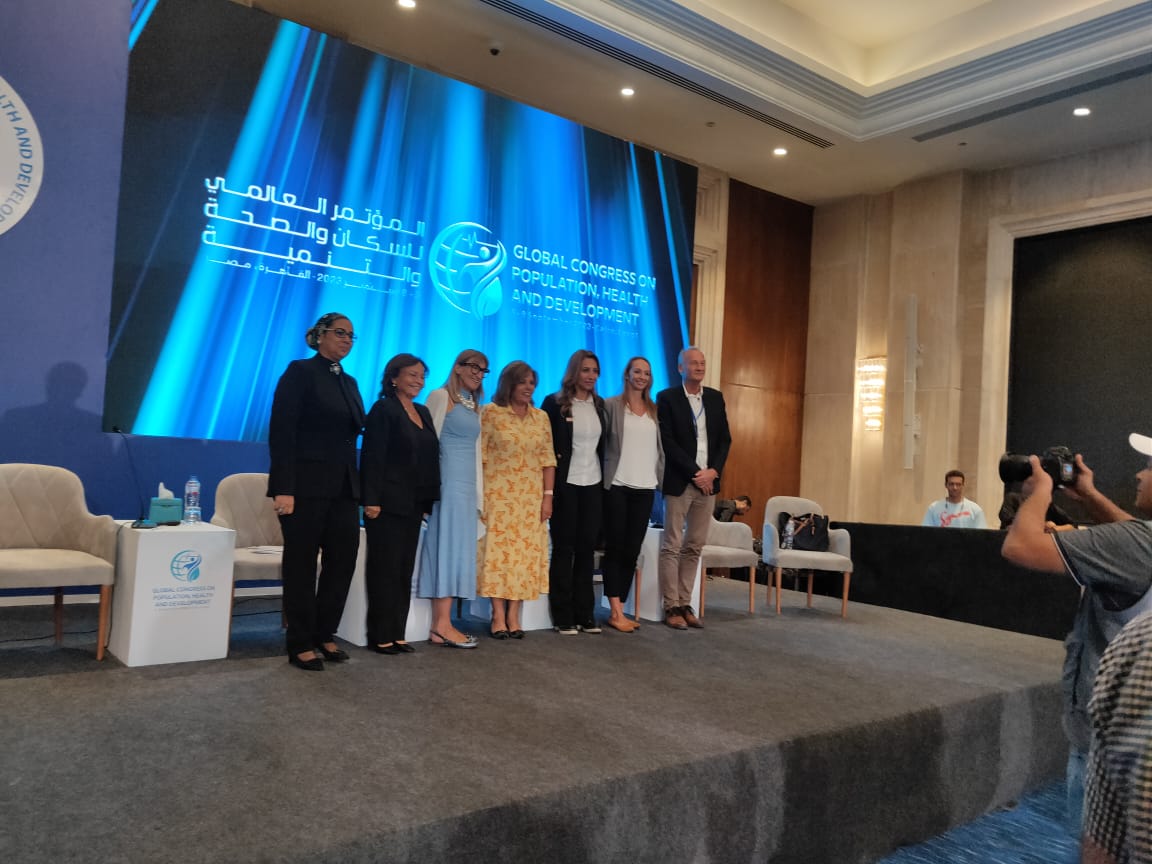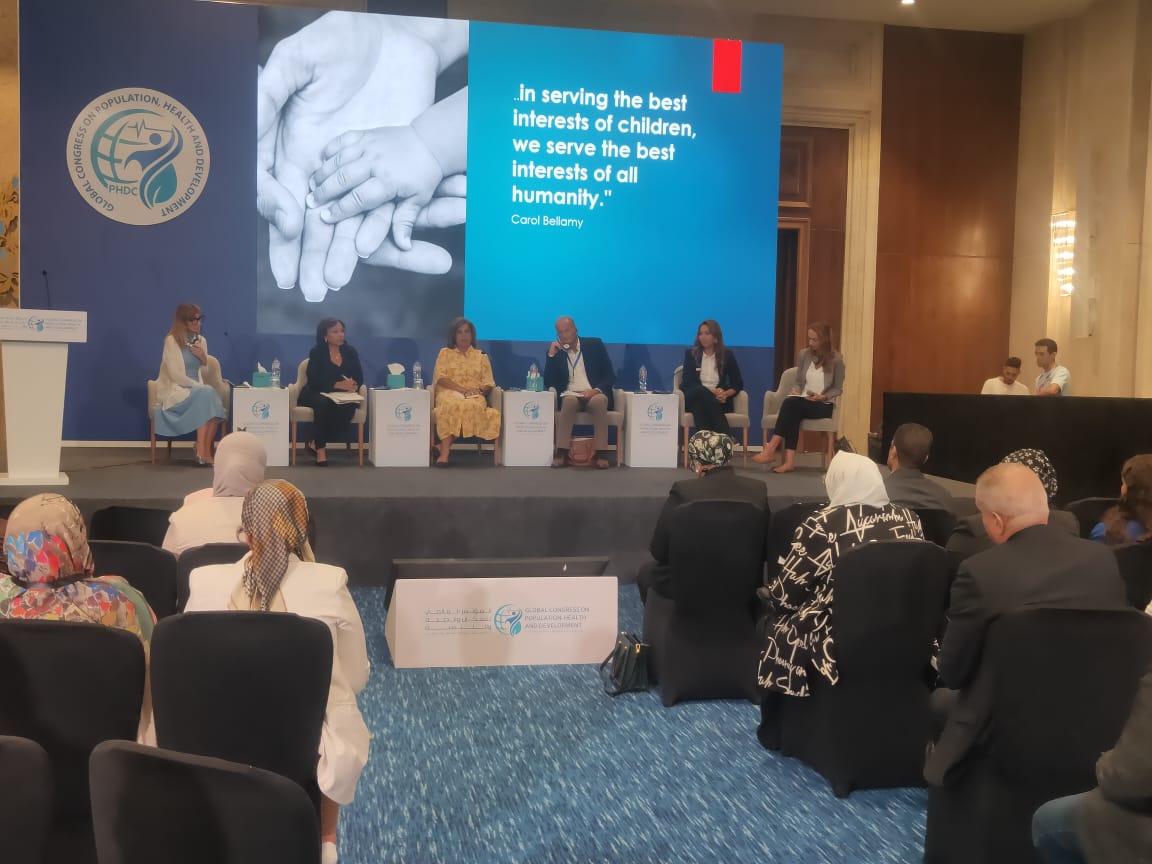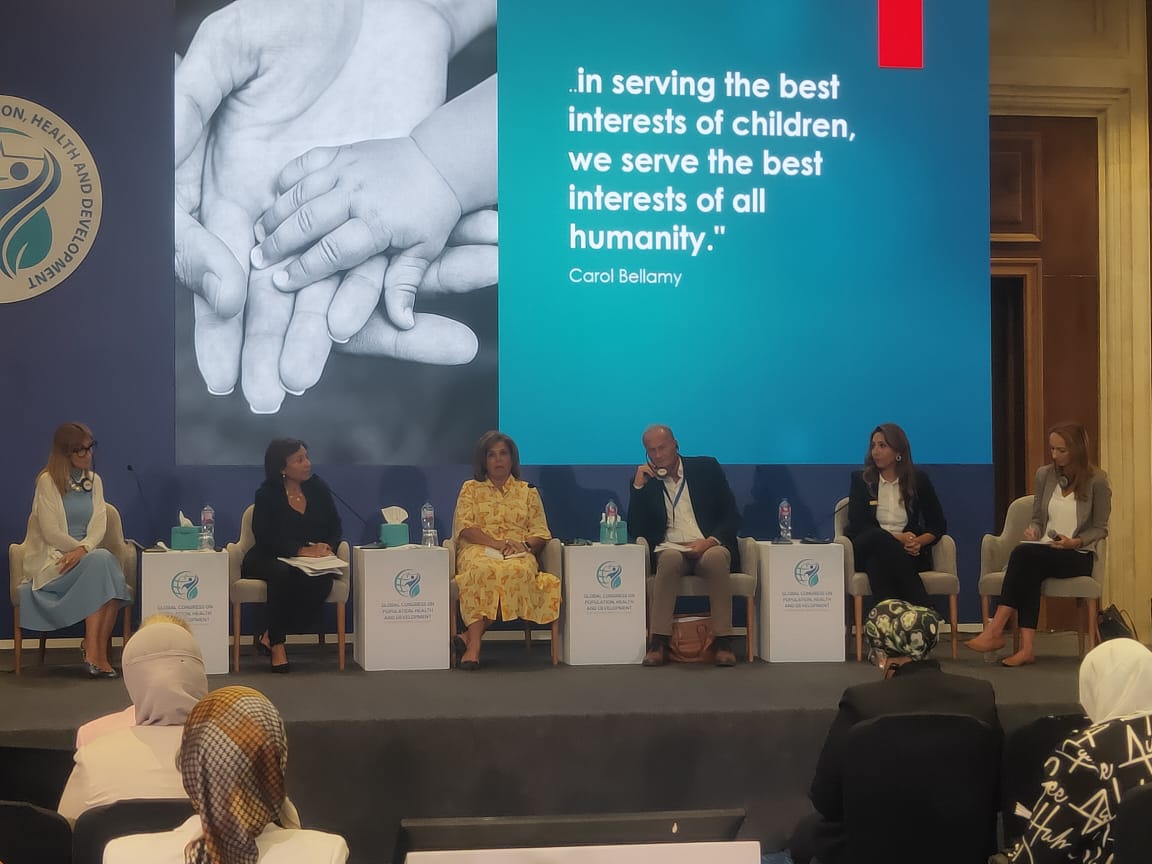Participation of the President of the National Council for Human Rights in the session on children’s rights and the population problem
Moushira Khattab, President of the National Council for Human Rights (NCHR), participated in the session of the International Conference on Population, Health and Development, which was organized in cooperation between the National Council for Childhood and Motherhood, the United Nations Population Fund and UNICEF on children’s rights and the population issue.
The symposium focused on child labor and child marriage as forms of violations of children's rights and a source of population growth in some fragile families that deprive their children of the right to education and throw them into the labor market, which requires providing a database of children who have dropped out of education.
The President of NCHR spoke about the legal reference for this being that in 1989 the Convention on the Rights of the Child was signed, which recognized children as holders of obligatory legal rights. This agreement has been adhered to by all countries of the world and has become binding and includes every child in the world.
Egypt was at the forefront of the countries that ratified this agreement and hosted the World Summit for Children. As a holder of legal rights that must be fulfilled, including the right to survive and develop, and the family’s protection for him, and its responsibility to ensure that he enjoys the rights provided by the state, such as the right to education, enjoyment of good health, and protection from violence and exploitation, and the means of enjoying these rights together is to attend school, which must ensure that the child exercises these rights. Combined. It must ensure that education arms the child with the life and academic skills that qualify him to be an effective citizen participating in a democratic society.
She added that depriving a child of education and throwing him into the labor market is against the rights of the child, is considered commercial exploitation of the child, and tempts fragile families to have more children. However, this situation increases poverty, illiteracy, violence, and harms the child’s physical and psychological health. The economic losses are huge for the family and society, and we have studies and statistics that indicate this. The Minister of Health presented an excellent scientific presentation proving this.
Recommendations:
1- Ensure that every child is enrolled in education and that it is of good quality and attractive to the child.
2- Particular attention to girls’ education.
3- Helping poor families and carefully monitoring their children’s enrollment and continuation of education.
4- Holding accountable the guardian who deprives the child of his right to education and forces him into the labor market or into early marriage which we consider a type of human trafficking.
5-Ensure that adequate resources are allocated to sports, cultural and environmental activities in the school.
6- Supporting protection committees in the governorates as an early warning mechanism
7- Allocate resources and skills to the school health program
8- Expanding girl-friendly schools
She pointed to the existing cooperation with the National Council for Childhood and Motherhood, the Ministry of Education, and the Ministry of Justice. It aims to ensure that the child and mother enjoy their rights guaranteed to them by the Constitution and the law, and ensures that the child is protected from exploitation and that he becomes the breadwinner for the family. It is an incentive for more childbirth in less fortunate families, and thus one of the sources of population increase that perpetuates illiteracy and poverty.





 English
English
 Arabic
Arabic
 French
French


